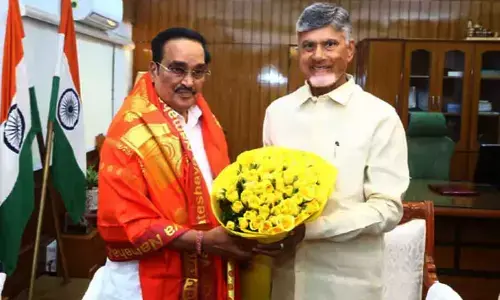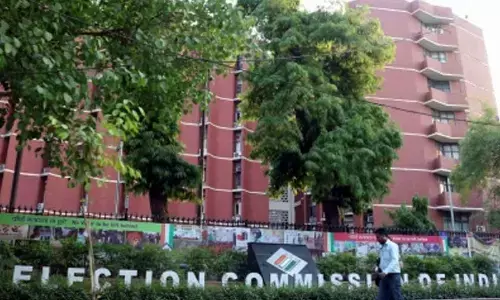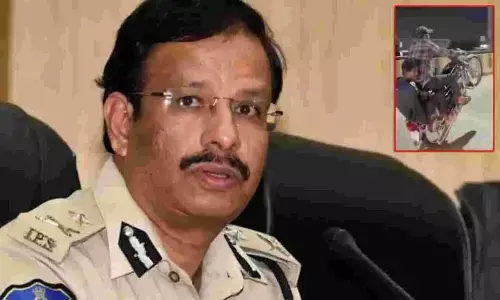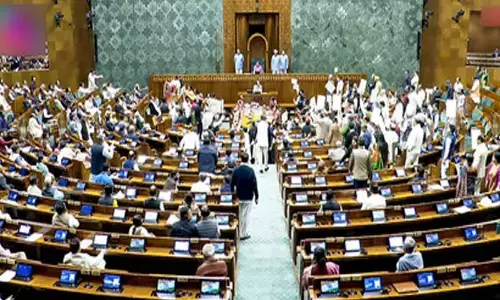Let there be a method in the madness too!

Let there be a method in the madness too!
The week from April 16 to 23 has once again witnessed a naked dance of communal frenzy in some parts of the country. After violent incidents of attack on the Hanuman Janmotsav procession in Jahangirpuri locality in Delhi and similar incidents in Gujarat, Madhya Pradesh, Rajasthan different narratives have been churned out by both the Hindu as well as Muslim leaders.
The week from April 16 to 23 has once again witnessed a naked dance of communal frenzy in some parts of the country. After violent incidents of attack on the Hanuman Janmotsav procession in Jahangirpuri locality in Delhi and similar incidents in Gujarat, Madhya Pradesh, Rajasthan different narratives have been churned out by both the Hindu as well as Muslim leaders. The media has been abuzz with such stories most of which are senseless or laughable.
A post-mortem of these ghastly incidents invariably leads to a conclusion that even after snatching some 30 per cent of Bharat, the self-proclaimed minority called Muslims still thinks that it is its birth right to defy the solemn provisions of the Constitution which in most unequivocal terms guarantees every citizen equality, freedom of movement, expression and religion and protection of law against any assault on the life and property. This perception of Muslims by and large undoubtedly stems from the Quaranic teachings in Madrasas and at homes which makes an ordinary Muslim a hard-core fanatic who considers that folks from other faiths are 'Kafirs' and therefore, run after their blood, whether on a slightest provocation or no provocation at all. According to such criminal elements, all rights are granted by the Constitution and other statues to Muslims only and other than Muslims have no rights whatsoever. This intolerance has been the root cause of continuous strife between the fanatic Muslims. who enjoy active or tacit support from the vested interests, and the law-abiding humble Hindu majority.
And a sort of mechanism was developed by the ruling pro-Muslim governments and communal Muslim elements whereby the former were to get a cake of vote-bank in return of concessions, freebies, subsidies under the garb of the welfare of minorities. This quid pro quo situation also allowed the fanatics to indulge in brow-beating, assaulting, insulting and even rioting against the majority Hindu community. It was due to this unwritten arrangement that killings of innocent Hindus , burning their properties and heinous offences, such as rape, kidnapping , extortion, were allowed to go mostly unpunished.
But the situation has changed after 2014 with the passing of the baton of power from the so-called secular parties to the nationalist parties, led by the Bharatiya Janata Party (BJP). The net results are now visible. The dormant and tolerant Hindu has become awake and conscious of his rights. He too, has begun paying back the Muslim fanatic elements in the same coin. Because of the moral and legal support extended by the government of the day, undoubtedly the present-day Hindu has become bold and brave. Therefore, in self- defence and in order to protect his fellowmen and property, today's Hindu valiantly fights against the violent elements. Indeed, this has become a cause of great concern for the fanatic elements who feel that the days of their hegemony have come to an end.
However, in all fairness, it must be conceded that such an eye-for-eye situation should not be allowed to prolong for long by the government. The response of the violence-infested State governments is certainly not praise-worthy though it may be applauded by the audience in a gallery. The government at the Centre and in different States has the first and the foremost duty to take preventive measures. With a huge police force at their command, the respective governments ought to have foreseen the situation and taken preventive measures. Further, in the wake of the violence and riots, the use of bulldozers is illogical, if not illegal, to say the least. Again, the rationale handed out by authorities for use of bulldozers is that the demolished constructions were without permission and therefore, illegal, can hardly be digested by a person with reasonable prudence, considering the timings of such demolitions. The crux of the story is: when our ruling parties will learn to shed hypocrisy and honour the will of the majority? In such an explosive situation, instead of following the legal path of declaring the country as a Hindu Rashtra and striping off the political rights of all anti-national elements, the instant reaction of bulldozing buildings of criminals is strictly not a proper manner to resolve the burning issues.
SC on ad-hoc employees
Reiterating its judgments in Rattanlal & others Vs State of Haryana and Hargurpratap Singh Vs State of Punjab and others, a bench comprising Justice L Nageswara Rao and Justice BR Gavai said : " It is a settled principle of law that an ad- hoc employee cannot be replaced by another ad-hoc employee and he can be replaced only by another candidate who is regularly appointed by following a regular procedure prescribed."
The court, however, rejected the plea of the appellants for payment of salaries, as per UGC pay scales, saying the advertisement describing the appellants as guest teachers had clarified that they would be paid an honorarium at the rate of Rs.1,000 per hour. The verdict was delivered in an appeal titled: Manish Gupta and another Vs Jana Bhagidari Samiti and others.
Accused may examine complainant in S.138 A oEXAMINE COMPLAINANT IN S.138 A NI case
Justice GK Ilanthiraiyan of the Madurai bench of Madras High Court while dealing with a criminal revision petition in SMD Mohamed Abdul Khader Vs Muniswari, relied upon the decision of the Supreme Court in Tedhi Singh Vs Narayan Dass Mahant (2022) in which the apex court had held that when the accused takes specific stand that the complainant had no source of income to lend such a huge amount, the accused can very well prove the same by cross-examination, witnesses and material. Setting aside the order of a lower court, he allowed an accused under Section 138 A of the Negotiable Instruments Act to examine complainant's side of witnesses.
Dealing with a criminal revision petition in SMD Mohamed Abdul Khader Vs Muniswari, the court relied upon the decision of the Supreme Court in Tedhi Singh Vs Narayan Dass Mahant (2022) in which the apex court had held that when the accused takes specific stand that the complainant had no source of income to lend such a huge amount, the accused can very well prove the same by cross-examination, witnesses and material.
SUMMER VACATION FOR TS COURTS
All the courts of the Civil Judges (Junior Division) on civil side and Civil Judge (Junior Division) of the City Civil Courts including Civil Judges functioning as Rent Controllers will be closed for the summer vacation from May 2 to June 3 (Both days inclusive), according to an official notification. Similarly, for all the courts of the Civil Judges of the City Civil Courts the period of summer vacation shall be from May 10 to June 3.
















